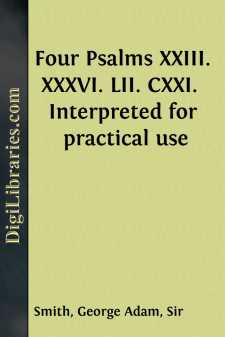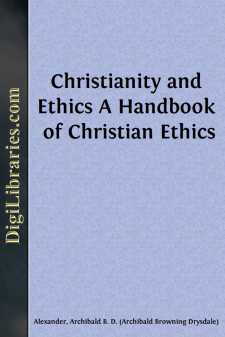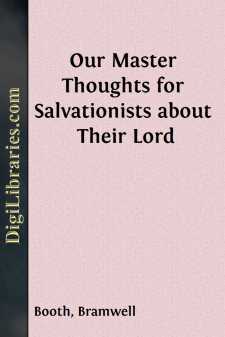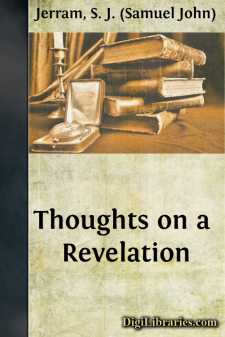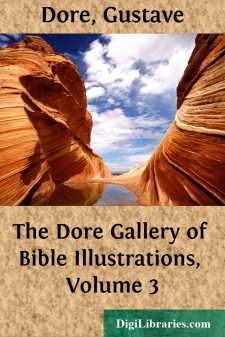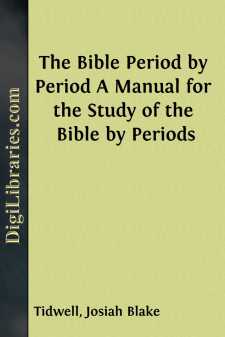Categories
- Antiques & Collectibles 13
- Architecture 36
- Art 48
- Bibles 22
- Biography & Autobiography 813
- Body, Mind & Spirit 142
- Business & Economics 28
- Children's Books 17
- Children's Fiction 14
- Computers 4
- Cooking 94
- Crafts & Hobbies 4
- Drama 346
- Education 46
- Family & Relationships 57
- Fiction 11829
- Games 19
- Gardening 17
- Health & Fitness 34
- History 1377
- House & Home 1
- Humor 147
- Juvenile Fiction 1873
- Juvenile Nonfiction 202
- Language Arts & Disciplines 88
- Law 16
- Literary Collections 686
- Literary Criticism 179
- Mathematics 13
- Medical 41
- Music 40
- Nature 179
- Non-Classifiable 1768
- Performing Arts 7
- Periodicals 1453
- Philosophy 64
- Photography 2
- Poetry 896
- Political Science 203
- Psychology 42
- Reference 154
- Religion 513
- Science 126
- Self-Help 84
- Social Science 81
- Sports & Recreation 34
- Study Aids 3
- Technology & Engineering 59
- Transportation 23
- Travel 463
- True Crime 29
Science and Morals and Other Essays
Description:
Excerpt
§ 1. THE GOSPEL OF SCIENCE
In the days before the war the Annual Address delivered by the President of the British Association was wont to excite at least a mild interest in the breasts of the reading public. It was a kind of Encyclical from the reigning pontiff of science, and since that potentate changed every year there was some uncertainty as to his subject and its treatment, and there was this further piquant attraction, wanting in other and better-known Encyclicals, that the address of one year might not merely contradict but might even exhibit a lofty contempt for that or for those which had immediately preceded it.
During the three years immediately preceding the war we had excellent examples of all these things. In the first of them we were treated to a somewhat belated utterance in opposition to Vitalism. Its arguments were mostly based upon what even to the tyro in chemistry seemed to be rather shaky foundations. Such indeed they proved to be, since the deductions drawn from the behaviour of colloids and from Leduc's pretty toys were promptly disclaimed by leading chemists in the course of the few days after the delivery of the address.
Further, the President for the year 1914 in his address (Melbourne, p. 18) told us that the problem of the origin of life, which, let us remind ourselves, in the 1912 address was on the point of solution, "still stands outside the range of scientific investigation," and that when the spontaneous formation of formaldehyde is talked of as a first step in that direction he is reminded of nothing so much as of Harry Lauder, in the character of a schoolboy, "pulling his treasures from his pocket—'That's a wassher—for makkin motor-cars!'" Nineteen hundred and twelve pinned its faith on matter and nothing else; Nineteen hundred and thirteen assured us that "occurrences now regarded as occult can be examined and reduced to order by the methods of science carefully and persistently applied." Further, the examination of those facts had convinced the deliverer of the address "that memory and affection are not limited to that association with matter by which alone they can manifest themselves here and now, and that personality persists beyond bodily death." Nineteen hundred and fourteen proclaimed telepathy a "harmless toy," which, with necromancy, has taken the place of "eschatology and the inculcation of a ferocious moral code." And yet it is on telepathy, if we are to believe the daily papers, that Sir Oliver Lodge largely relies for his proofs. Here, at any rate, is a pleasing diversity of opinion which fully bears out what was said at the beginning of this paper. It is, however, with the third address, or rather pair of addresses, that we are concerned; for the meeting of 1914, not only was the first to be held at the Antipodes, but also the first to be honoured with two addresses—one in Melbourne, the other in Sydney.
Their deliverer is a very distinguished and a very independent man of Science. It was he who insisted, at a time when the domination of a very rigid form of Darwinism was much stronger than it is to-day, that the picture of Nature as seen by us is a Discontinuous picture, though Discontinuity does not exist in the environment. And it was he who asked whether the Discontinuity might not be in the living thing itself, and prefixed to the monumental work in which he discussed this question the significant text from the Bible: "All flesh is not the same flesh; but there is one kind of flesh of men, another flesh of beasts, another of fishes, and another of birds." Nearer to our own times, he was one of a small body of men of science who almost synchronously disinterred the forgotten works of Abbot Mendel, and proclaimed them to the world, as containing discoveries of the first value. He was thus always something of a "Herald of Revolt," and maintains that character in these addresses. "We go to Darwin for his incomparable collection of facts. We would fain emulate his scholarship, his width and his power of exposition, but to us he speaks no more with philosophical authority....



